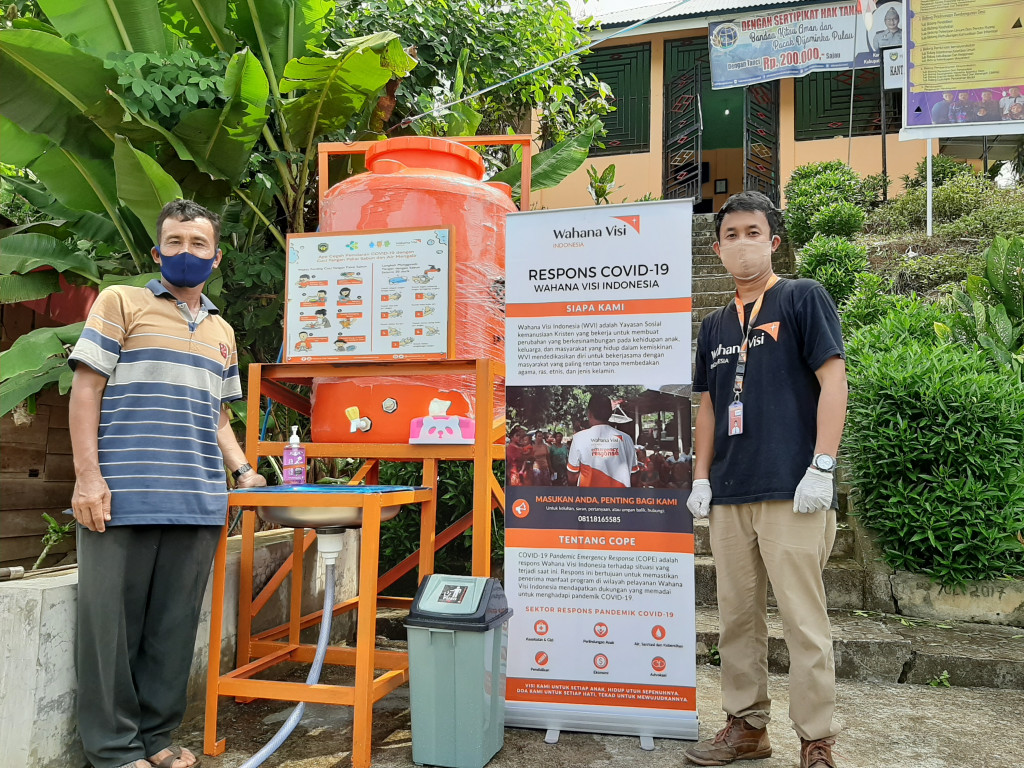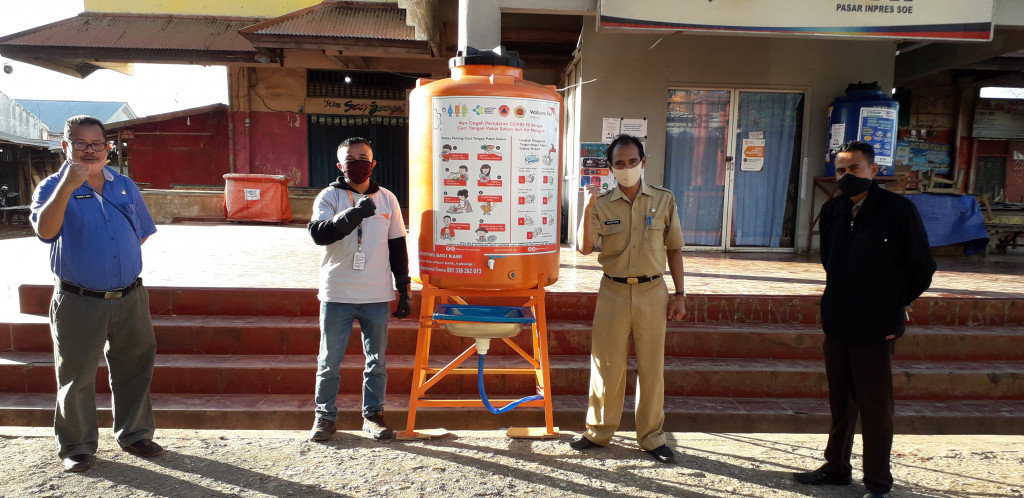Nias Selatan Regency, North Sumatra Province, Indonesia
In collaboration with

July 2020 – May 2021
We improved the health conditions of some 3,600 families and freed communities from open defecation. We provide training to groups of women as members of water committees so that they can be essential actors in the Social Entrepreneurship Group.
Objectives
- Improve health and living conditions for community members in the South Nias Area Program by 2021 by providing access to clean water and improved sanitation for the most vulnerable.
- Strengthen water committees and achieve the declaration of Open Defecation Free for the community.
Beneficiaries
1,200 direct
506 women and 396 children under 15
14,120 indirect
6,807 women and 2,507 children under 15
The population of the 16 communities of the South Nias Area Program.

On the ground
Almost half of the population does not have access to safe water and does not practice handwashing. Rainwater collection is their primary source of supply. Few communities are free from open defecation.
The Nias Selatan district is located in the island of Nias and is considered one of the least developed and remotest areas in the North Sumatra province. 16.45% of the population lives in poverty, with an average daily per capita income of 10 dollars. Most of the population subsists on agriculture and livestock. According to data from the Fanayama primary health center (2019), only 56% practices handwashing with soap and only 48% has stopped defecating in the open.
40.45% of the population of the South Nias Area Program does not have access to water supply. Although there are wells or springs, some are in disuse due to a lack of maintenance or lack of community water committees. Practically all homes have a rainwater collection system on which they depend as their main source of supply.
Only 37.80% of the families have sanitation infrastructures for defecation. Of the 16 communities where World Vision works, none has been certified as Open Defecation Free.

In detail
A well will be built to supply about 75 liters of water per day and two community septic tanks will be installed for the use of 1,200 people and 40-60 families with the aim of reducing the spread of diseases such as Covid-19.
Moreover, the capacities and functioning of the Water Committee will be strengthened to guarantee the sustainability of infrastructures, and a community awareness campaign will be carried out to inform about appropriate hygiene practices for the prevention of Covid-19.
Finally, women’s groups will be trained as members of the water committees so that they can become important actors in the Social Entrepreneurship Group in the water, sanitation and hygiene sector (WASH).
The added value of this project consists of the integration of interventions related to women and children. Malnutrition rates and diseases due to unhealthy environments, especially among children, will be reduced when the community can have access to clean water and hygiene habits such as handwashing with soap, as well as access to latrines and toilets to prevent open defecation.
Methodology to be used
This project applies the concept of community participation and community development approaches. Partner involvement ranges from the planning process to evaluation. The main partners involved are the water committee, the public health center and the regional social agency for traditional and religious leaders.
El seguimiento y la evaluación se llevarán a cabo rutinariamente conjuntamente con socios, gobiernos locales y representantes de la comunidad. La comunidad también participará activamente en cada proceso de este proyecto a través de foros comunitarios.
Monitoring and evaluation will be routinely carried out in conjunction with partners, local governments and community representatives. The community will also be actively involved in each process of this project through community forums.
The method for implementing this project is community participation and empowerment. The community will be actively involved in every step of the program development.
Prior to this, community members and their representatives will be trained and equipped with skills, knowledge and values so that the project team, partners and community have the same understanding of the project, the scope of objectives, goal, indicators and measurement of the project.


